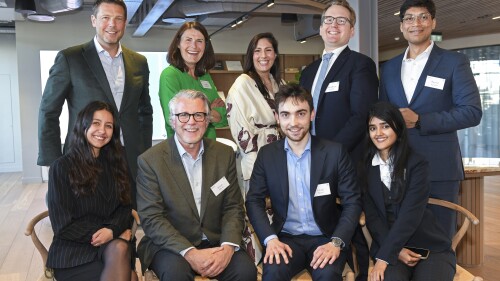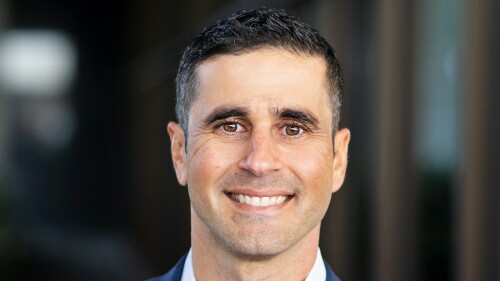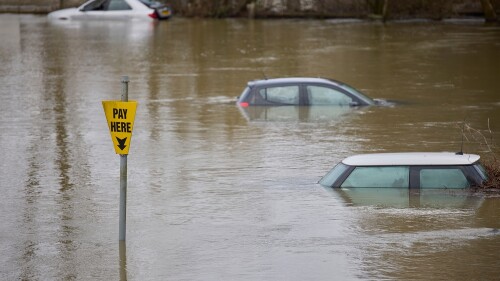At the ULI U.K. annual conference in London, three panelists discussed how the global economy has reduced inequality between nations but increased it within nations, saying that technology is both the root of and the solution to some of these problems like dealing with climate change and a polarized political landscape.
“Politics is increasingly polarized,” said Paul Donovan, UBS global chief economist. “We’re not going left of center or right of center—it’s moved to the extremes.”
What’s more, said Donovan, recent years have also seen the rise of single-issue politics—something that can, at least in part, be blamed on social media. “With modern communication, younger people are rallying around single issues,” he said. “Politics is now descending into a lot of single issues. There is no overarching policy strategy.”
In order to fully understand the phenomenon, however, Donovan urged the audience to consider the bigger picture. Over the course of 30 years, he pointed out, inequality between nations has collapsed. Over that period, the situation has changed from half the world’s population living in poverty to under 10 percent today.
At the same time, however, Donovan said that inequality within nation states has grown enormously, especially since 2008—something that is true not just in avowedly capitalist economies such as the United States, but also in more social democratic countries such as Sweden and Norway. “That wasn’t fully appreciated until recently,” he said.
The problem was that the rise in consumer credit up until 2008 masked income inequality, so when the credit crunch hit, inequality became very visible, very quickly. “And that led to a rise in resentment, which happened very abruptly,” Donovan said.
If that wasn’t enough, the drying up of credit happened at the exact same time that the emergence of artificial intelligence and other forms of digitization were laying the foundations for the fourth industrial revolution. “The outcome of any revolution is that society changes,” said Donovan.
“The challenge is simple: people don’t like change. When you have any sort of industrial revolution, social status changes. Some jobs disappear. With the current revolution, 10 to 15 percent of jobs will go. Some people will realize that their social status has gone down.”
What all this leads to, said Donovan, is scapegoat economics—something that can be seen across Europe and North America. “People think that they are doing just as good a job, but they see that their income and status have gone down,” he said. “They need something to blame, like that Polish person who has driven down wages.”
He added: “They blame the foreigner. It’s absurd, but it’s what happens. It’s the introduction of prejudice politics. And it happens among the same groups around the world—low income, low skilled, rural not urban, male, and so on. It’s the group least able to cope with change. And that has resulted in Brexit, the U.S.’s trade disputes, and so on.”
In order to survive change, people need to be flexible, Donovan suggested. “But prejudice politics destroys flexibility,” he said. “So, we have a problem with inflexibility at the exact same time that we are seeing huge change.”
And then there is the small matter of climate change, which Donovan likened to the 2008 credit crunch. “Today, the global economy achieves its standard of living by using nonrenewable resources,” he said. “The amount of environmental credit we are using is extraordinary. It’s the equivalent to borrowing on credit for half of your household income.”
This, said Donovan, is already having an impact on economics. “For example, China’s growth is slowing because it doesn’t have the water to sustain growth,” he said. “So, either we have to accept a lower standard of living or we have to learn to do more with less. Unfortunately, politics is cutting innovation at the time when we need it most.”
Picking up on the theme, Araceli Camargo, cognitive neuroscientist and lab director at Centric Lab, said that the impacts of climate change are not just environmental or economic; they are psychological.
“We are seeing how a sense of home is changing with climate change,” she said. “It’s very important to psychology, and climate change is putting it under threat. There is a Native American tribe in Alabama that has become the first displaced community in the U.S. What does that do in terms of identity?”
Camargo also pointed out that urbanization, which is usually regarded as a positive sign of an economy’s growing maturity, can also be due to climate change. “In China, cities are growing, but it’s partly because people can no longer make a living from the land,” she said. “How we cope with this is going to cost a lot of money.”
Much of the response to climate change–related issues is likely to come in the form of the innovative application of technology, according to the third and final member of the panel, Kimberley Matenchuk, senior director at GE Digital. For instance, the company increasingly gets calls from building managers looking to increase water efficiency, she said.
However, Matenchuk said that the technology has the potential to go much further—something that will be essential when water starts to become less available. “The water industry loses 25 percent of water annually through leakages,” she said. “But we could use digital technology to predict when pipes are about to burst and take action before it happens.”


![Western Plaza Improvements [1].jpg](https://cdn-ul.uli.org/dims4/default/15205ec/2147483647/strip/true/crop/1919x1078+0+0/resize/500x281!/quality/90/?url=https%3A%2F%2Fk2-prod-uli.s3.us-east-1.amazonaws.com%2Fbrightspot%2Fb4%2Ffa%2F5da7da1e442091ea01b5d8724354%2Fwestern-plaza-improvements-1.jpg)


